This is not a tribute. This is not the version of a passage when something is forever lost it becomes sweeter in the memory of the beholder. But how can I forget the feeling of going to Ioannides bookshop and finding my way along with my best friends?
It is a childhood signified by the smell of piled up books, of strange little old ladies unwilling to do their job effectively—yet now sweet—it is the place where we discovered with our now lost sense of naive escapade, the joy of a book that no one else detected and had found at last its rightful owner.
To us who grew up with this bookshop, not only it’s books were a symbol of a real treasure, but we were ourselves kings and queens in imaginary lands full of multitudes and possibilities, of fictitious and non-fictitious beings and last but not least a bunch of odd little women giving frustrating customer service. I wonder what will happen now to these little ladies? And what will happen to us when we are still acute with our childlike sense of discovery and our security blanket, our safety net, terminates it’s business forever…
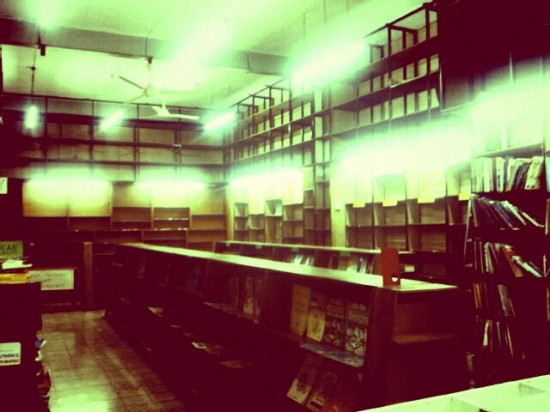
What once was there is no more
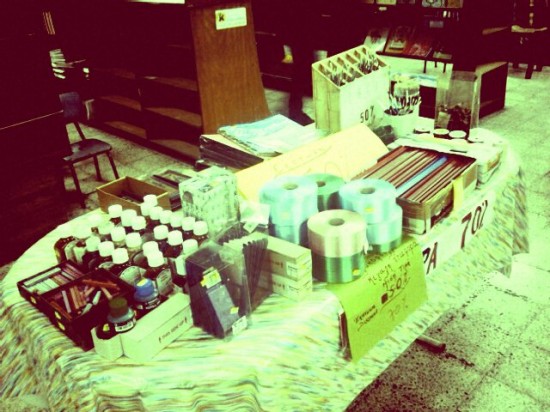
Artist's material, the last bargain
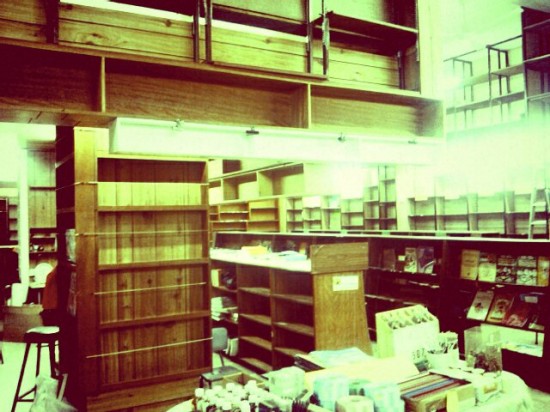
An empty space
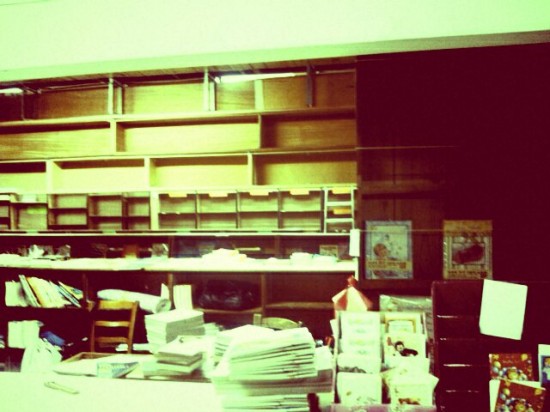
The remaining last
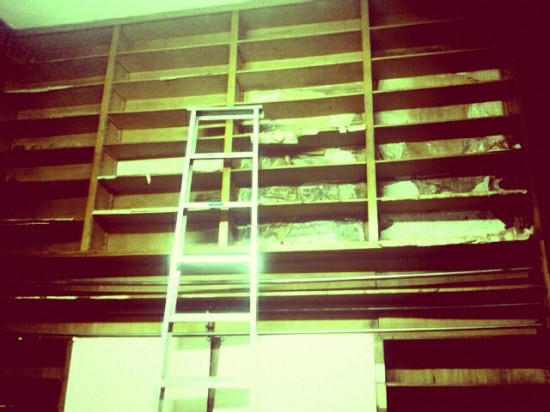
A ladder that served its purpose

Mahmud Hadji'dinijad says,
It’s a fascinating thing, these dying spaces. You feel obliged to mourn the loss that comes with their closure, while at the same time hoped they’d get it right and modernised their ways a little so as not to die. But what you are actually mourning is the pastness that they represented – a temporality that necessarily could not have co-existed in the actual present.
on 08 December 2010 / 5:39 PM
Ioannis Papaloizou says,
– Can’t you just look in your computer systems to see if you have it? says hopeful and modern-thinking I.
Smirk on lady’s cynic face behind the counter:
– All data is up here my dear, says hopeless and backwards-thinking her, boastingly pointing to the died-blond fur on her skull.
That was the end of respect and of our relationship.
on 10 December 2010 / 12:52 AM
Aileen says,
Thanks for spending time on the computer (witinrg) so others don’t have to.
on 11 November 2011 / 10:52 AM